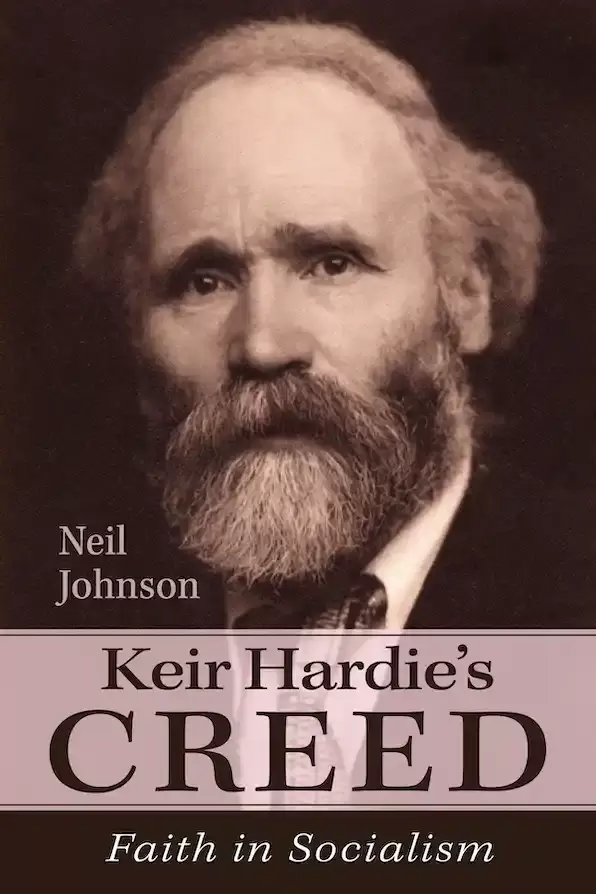|
New Keir Hardie books are rare, so Neil Johnson's Keir Hardie’s Creed: Faith in Socialism is welcome. This slim and very readable book focuses on how Christianity influenced Keir Hardie's life. It is the first in-depth exploration of Hardie's religious socialism. The introduction sets the context and short biography of Hardie. He then discusses Christian socialism and how that label might or might not be applied to Hardie's views. The author distinguishes between Christian socialists and socialist Christians, with the latter discovering values in socialism that had been lost to the church. Hardie's perspectives on organised religion are well known, probably best set out in his pamphlet, Can a Man be a Christian on a Pound a Week, and these are reflected in the institutional attacks on him. He also said, 'The rich and comfortable classes had annexed Jesus and perverted his Gospel.’ Words that were not likely to endear him to the church hierarchy!
The author argues that Hardie's Christianity was Christ-centred – a very personal faith in the person of Jesus. Hardie often distinguished between the Christianity of Jesus and the 'Churchianity’ of contemporary Christians. In the Labour Leader in 1900, he said, 'Christ never once denounced the poor, weak erring sinner. He kept the invectives of His wrath for the clergy and religious folk of His day.' His faith was also practical. In answer to the question, 'Do the churches heed the poor?' Hardie replied, 'The Sermon on the Mount is the panacea, not creeds. Doing, not believing, the former only makes one a Christian.' As an agitator, he also fell within the prophetic tradition. This led him to reference the Jewish prophets as well as other religions, including Islam, the Baha'i Faith and Mandaeism. He regarded John the Baptist as a revolutionary leader and called on his spirit to purge the genteel assemblies of the organised church. Religion was not the only influence on Keir Hardie. His socialism was also built on the work of Robert Burns and Karl Marx. Thomas Carlyle was influential in his early years, although by 1909, he had discovered his failings. Hardie was always a 'big tent' socialist, adopting many historical and contemporary figures to the cause. He found a common thread stretching back to the Hebrew prophets, Jesus and the early church. The common theme was nonconformity. The author concludes that the theological foundation of the Evangelical Union gave Hardie a concept of God that emphasised the egalitarianism of grace personified in Jesus – the labourer and political agitator. The liberation struggle had been pursued by people inspired by their values and beliefs – labour history is religious history. This is a valuable addition to the body of work that examines not only Keir Hardie’s actions but also his beliefs. Well worth a read.
0 Comments
|
AuthorThis is the Blog of the Keir Hardie Society. Archives
March 2024
Categories |

 RSS Feed
RSS Feed